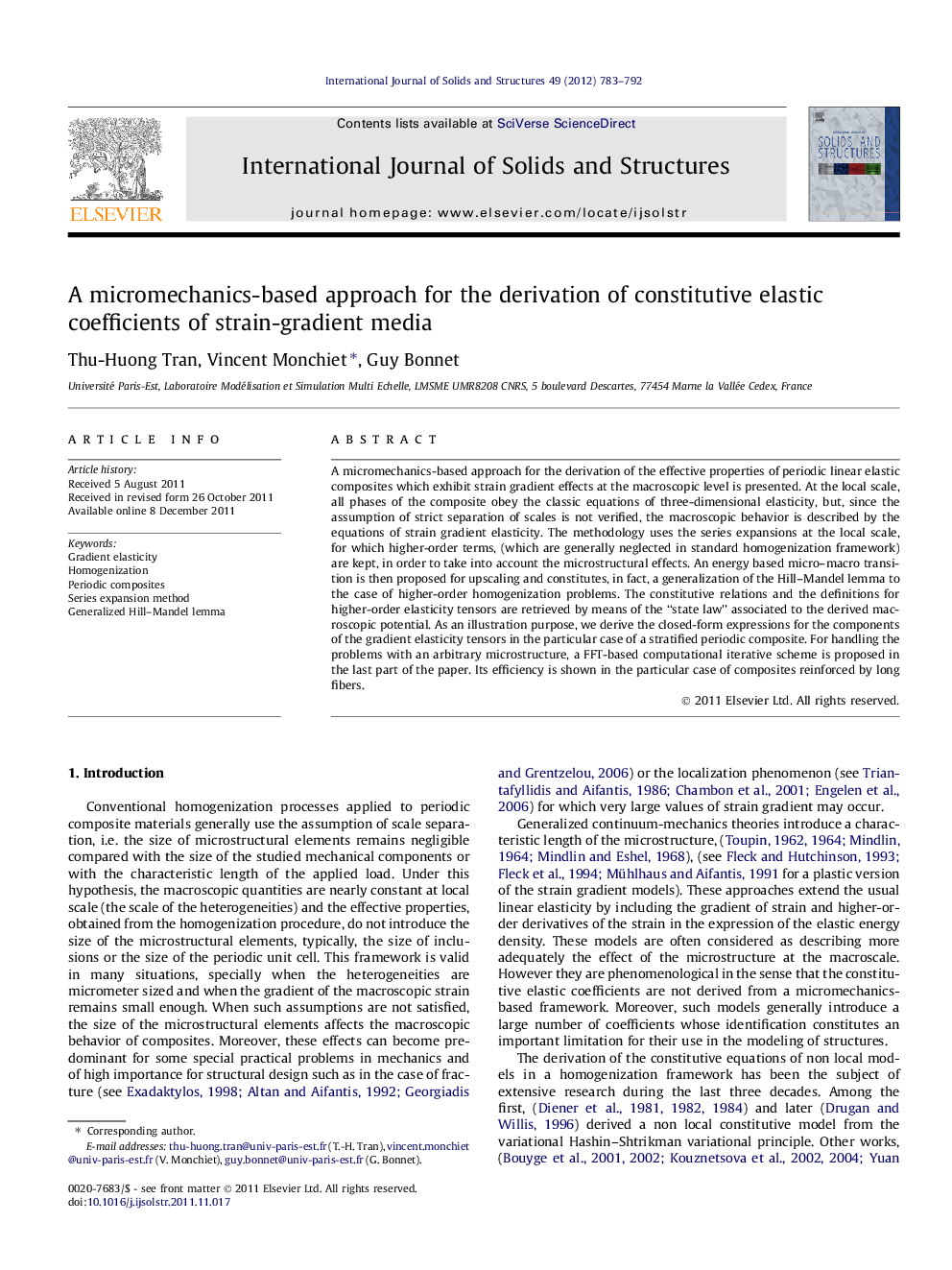| Article ID | Journal | Published Year | Pages | File Type |
|---|---|---|---|---|
| 278166 | International Journal of Solids and Structures | 2012 | 10 Pages |
A micromechanics-based approach for the derivation of the effective properties of periodic linear elastic composites which exhibit strain gradient effects at the macroscopic level is presented. At the local scale, all phases of the composite obey the classic equations of three-dimensional elasticity, but, since the assumption of strict separation of scales is not verified, the macroscopic behavior is described by the equations of strain gradient elasticity. The methodology uses the series expansions at the local scale, for which higher-order terms, (which are generally neglected in standard homogenization framework) are kept, in order to take into account the microstructural effects. An energy based micro–macro transition is then proposed for upscaling and constitutes, in fact, a generalization of the Hill–Mandel lemma to the case of higher-order homogenization problems. The constitutive relations and the definitions for higher-order elasticity tensors are retrieved by means of the “state law” associated to the derived macroscopic potential. As an illustration purpose, we derive the closed-form expressions for the components of the gradient elasticity tensors in the particular case of a stratified periodic composite. For handling the problems with an arbitrary microstructure, a FFT-based computational iterative scheme is proposed in the last part of the paper. Its efficiency is shown in the particular case of composites reinforced by long fibers.
